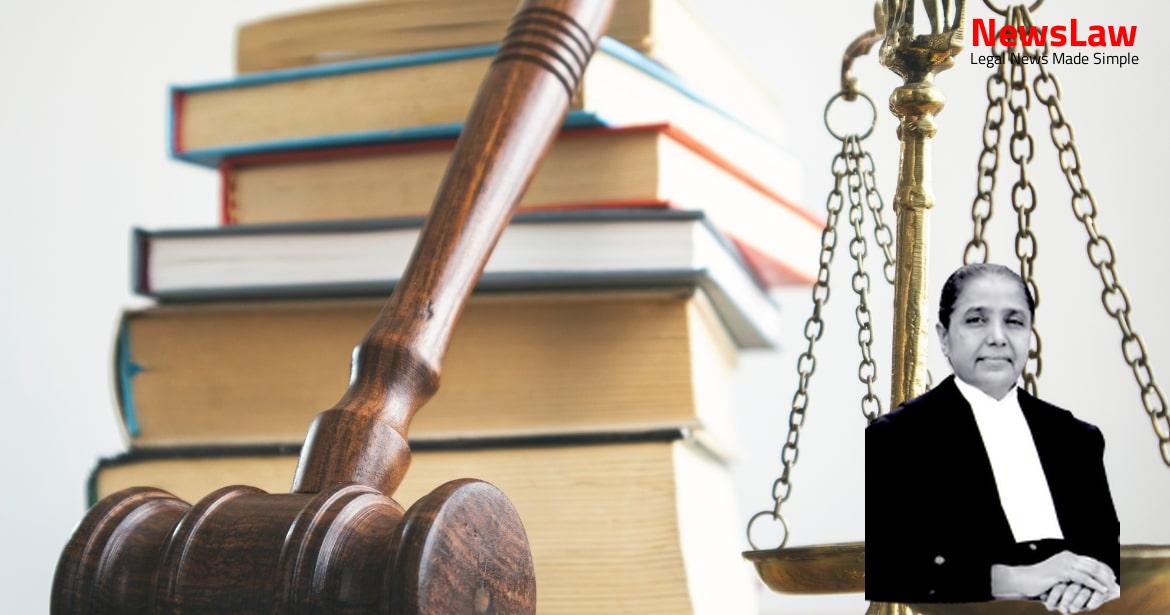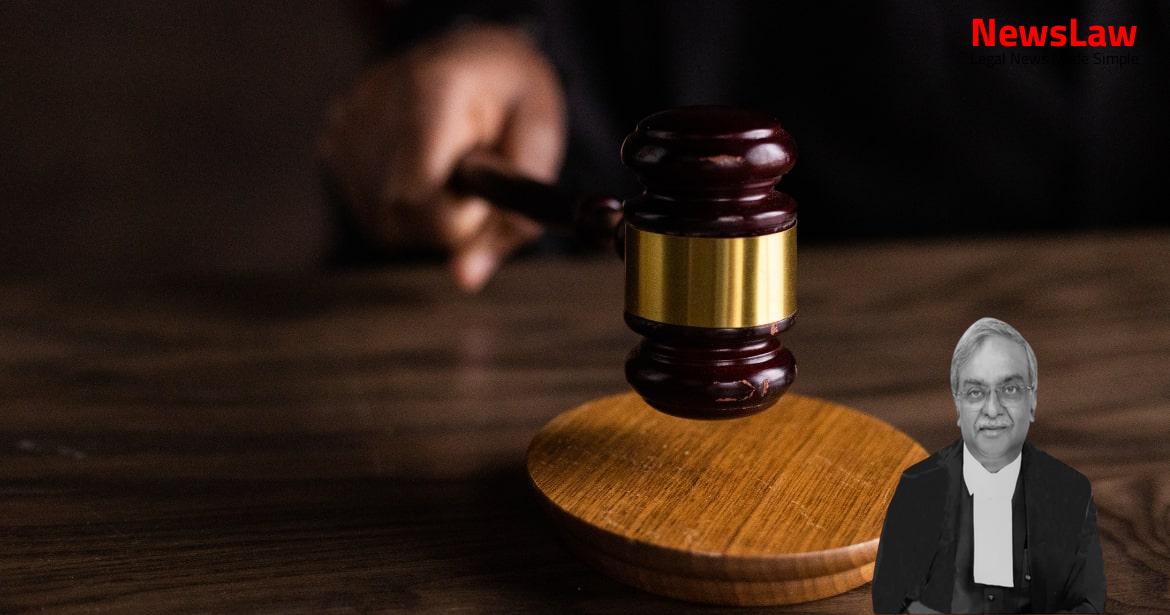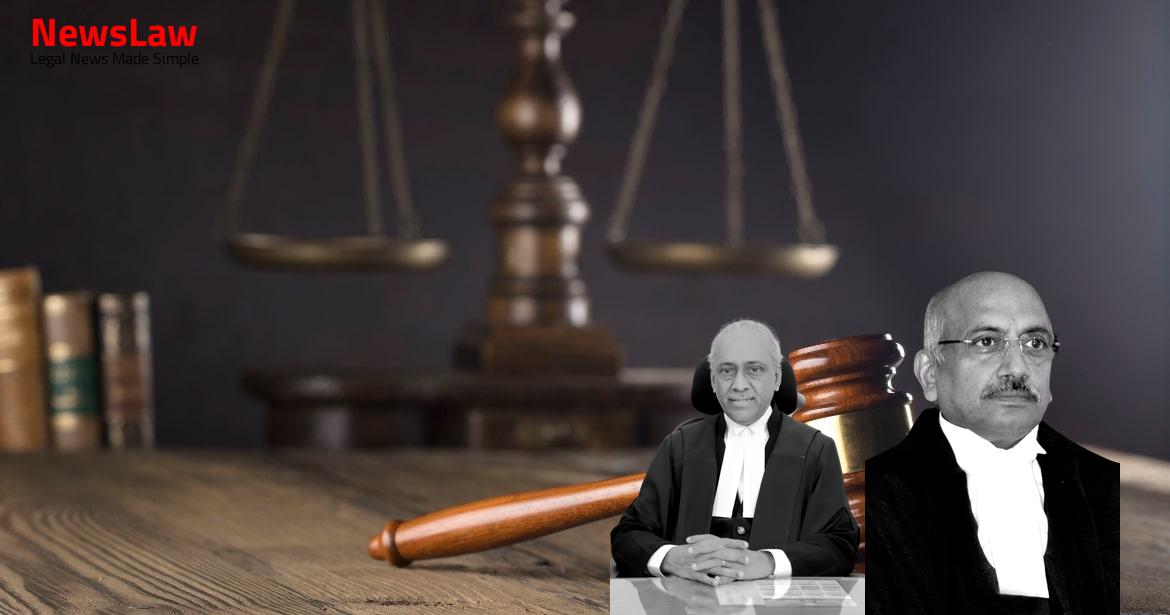In a landmark judgment, the court redefined the calculation of compensation in wrongful death cases, emphasizing a meticulous analysis based on legal principles. The decision sets a new standard in determining loss of dependency and future prospects, ensuring a fair and just outcome for the parties involved. Let’s delve into the key aspects of this significant legal ruling.
Facts
- The deceased, Harish Singh Arya, owned two taxis which earned him approximately Rs. 1,00,000 per year after expenses.
- The MACT awarded compensation to the widow, minor daughters, and for funeral expenses.
- The accident was proven by the testimony of an eyewitness who lodged the FIR.
- The deceased was 35 years old at the time of the accident with an annual income of Rs. 1,00,000.
- The Claimants provided certificates of ownership for the taxis to prove income.
- The Claimants filed for compensation for five dependents of the deceased.
- The deceased was hit by a speeding vehicle while answering nature’s call on the side of the road.
- The MACT deducted 1/4 of the deceased’s income for personal expenses and used a multiplier of 16 to compute loss of dependency.
- The total compensation awarded was Rs. 12,55,000 with interest.
- The Insurance Company was held liable for payment.
- The High Court maintained the award of Rs. 5,000 towards funeral expenses.
- The total compensation awarded to the Claimants was reduced from Rs. 12,55,000 to Rs. 5,81,440.
- The High Court disregarded the ITR for the year 2006-07 in determining the deceased’s income.
- The Court used an average income of Rs. 52,635 p.a. for the deceased based on ITRs from 2002-03 to 2004-05.
- 1/3 of the income was deducted towards personal expenses, and a multiplier of 16 was applied to determine compensation.
- The High Court incorrectly assumed the deceased was a government servant and made compensation decisions based on this erroneous assumption.
Also Read: Analysis of Maintenance Laws and Enforcement Procedures
Analysis
- The learned Single Judge disregarded the ITR for the year 2006-07 showing a deceased’s income of Rs. 98,500 p.a., claiming it was filed almost a year after the death, which was factually incorrect.
- High Court erroneously assumed the deceased was a Government employee without any such averments from the Claimants, leading to a misconceived judgment.
- High Court incorrectly assumed the deceased had a parallel taxi business based on the erroneous assumption of him being a Government employee, which affects the compensation assessment.
- Income determination based on incorrect averaging of ITRs for 2002-03, 2003-04, and 2004-05.
- ITRs for the assessment years 2005-06 and 2006-07 were filed before the death of the deceased.
- Income Tax Department’s rubber stamp on ITRs for 2005-06 and 2006-07 confirmed deceased’s income.
- Deceased’s income was approximately Rs. 1,00,000 p.a. as per ITRs and MACT’s Award.
- High Court was wrong in disregarding ITR for 2006-07 in assessing deceased’s income.
- Compensation for the claimants should be based on the deceased’s income as per ITRs.
- Courts below did not consider future prospects in line with the National Insurance Company Limited v. Pranay Sethi & Ors judgment.
- Deceased left behind five dependents, leading to deduction towards personal expenses being 1/4 as per court’s judgment in Sarla Verma & Ors. v. Delhi Transport Corporation & Anr.
- Multiply of 16 used by MACT and High Court deemed appropriate.
- Compensation to be awarded according to judgment in Pranay Sethi (supra).
- Compensation breakdown: i) Income: Rs. 1,00,000 p.a. ii) Future Prospects: 40% iii) Deduction towards personal expenses: 1/4 iv) Total income: Rs. 1,05,000 p.a. v) Multiplier: 16 vi) Loss of dependency: Rs. 16,80,000 vii) Loss of estate: Rs. 15,000 viii) Funeral expenses: Rs. 15,000 ix) Loss of consortium: Rs. 40,000 Total compensation: Rs. 17,50,000
- Compensation to be paid by Insurance Company within twelve weeks from judgment date with 7.5% interest p.a. starting from filing date of claim petition.
- Compensation enhanced under Article 142 of the Constitution of India to ensure complete justice between the parties.
Also Read: Land Ownership Dispute under Regional and Town Planning Act
Decision
- The court has set aside the previous decision
- Future prospects are awarded at 40% of the income of the deceased
Also Read: Legal Analysis on Compensation in Fatal Accident Case
Case Title: SANGITA ARYA Vs. ORIENTAL INSURANCE COMPANY LIMITED (2020 INSC 429)
Case Number: C.A. No.-002612-002612 / 2020



